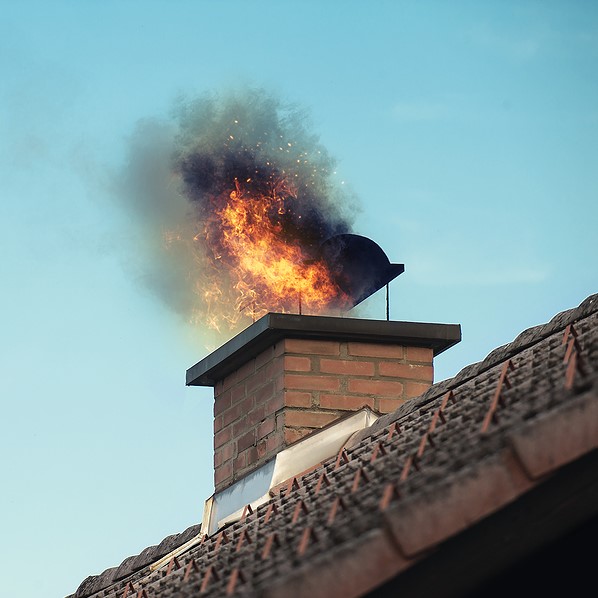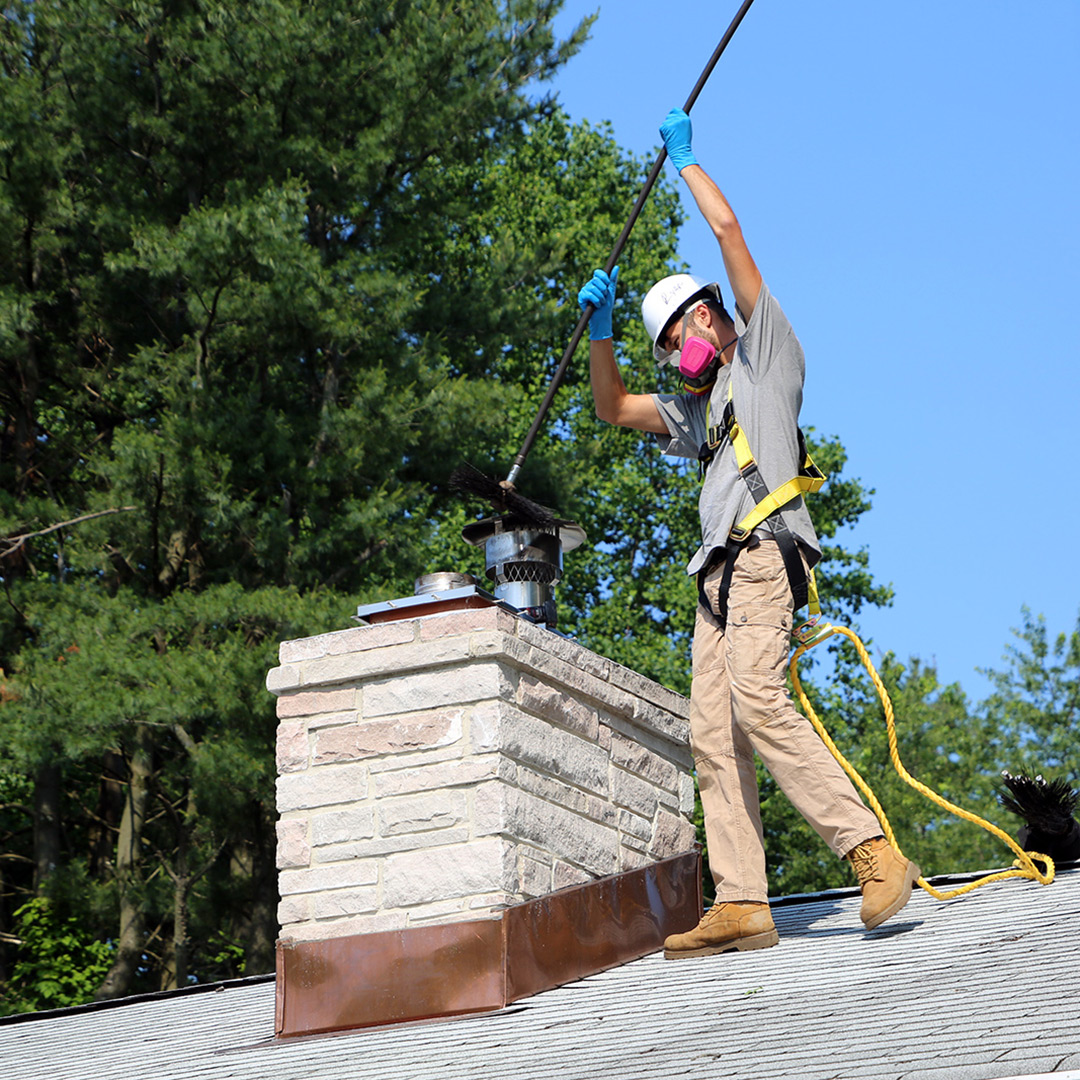6 Tips to Reduce the Risk of Chimney Fires
There’s something about owning and using a fireplace you can’t get with other heating systems. And while furnaces, radiant heating, and heat pumps may be more efficient and easier to use, they can’t deliver the nostalgia and feelings you get with a crackling fire. However, fireplaces come with risks, specifically chimney fires, and in this post, we look at the most common causes of chimney fires and six tips to keep you safe.
 Main Causes of Chimney Fires
Main Causes of Chimney Fires
Chimney fires aren’t as rare as you might think. There are about 25,000 chimney fires annually in the United States, costing nearly 125 million dollars in damage. Even more frightening is that many chimney fires go undetected until it’s too late. Most chimney fires are preventable if you know why they happen in the first place.
Creosote Buildup
The most common cause of chimney fires is creosote accumulation along the interior chimney walls. Creosote starts life as a flaky substance but builds into a thick, sticky, highly flammable coating that can ignite at a low temperature of 165 degrees Fahrenheit.
Poor Ventilation
Inadequate ventilation can cause smoke and gasses to build up in the chimney, increase the temperature, and start a fire.
Damaged Chimney Liners
Chimney liners protect your home’s combustible components from the high temperatures of gases and smoke rising in the chimney. If the liner is damaged or was improperly installed, it puts you at risk of a fire.
Blockages
Chimney blockages from debris, leaves, and animal nests restrict airflow and create a fire hazard. Regular chimney cleaning and installing a cap are key to keeping obstructions out.
Lack of Maintenance
Not keeping your chimney maintained allows minor issues, like cracks, to worsen, which could lead to a fire. You should schedule annual cleaning and inspection by a certified professional to catch potential problems before they turn into disasters.
Overloading the Fireplace
Burning excessive amounts of wood, trash, or other fuels at once can create an intense, prolonged fire that generates extreme heat, causing a fire.
Reduce Your Risk of Chimney Fires
Burn the Right Wood
The wood you burn is crucial to preventing creosote buildup and maintaining fire efficiency. Only use dry, seasoned hardwood like hickory, maple, or oak. Green wood contains too much moisture, which burns hotter and produces more smoke, leading to creosote.
Install a Chimney Cap
A chimney cap can prevent sparks and embers from landing on the roof or nearby flammable materials. Moreover, chimney caps stop debris and critters from getting in and causing a blockage.
Monitor the Fire
When using your fireplace, it’s essential to pay attention to how it’s burning. If you notice excessive smoke, odd odors, or strange sounds, it could be a sign of a problem that a professional should investigate.

Smoke and Carbon Monoxide Detectors
Smoke and carbon monoxide detectors save lives. They’re inexpensive and easy to install, and there’s no reason not to have them throughout the house.
Regular Inspections
Experts recommend inspecting your chimney at least once a year, preferably before the heating season begins. A trained chimney sweep can identify potential issues, like creosote buildup and masonry or liner damage, that could lead to a fire.
Regular Cleaning
Just as important as cleaning, you should have your chimney cleaned annually by a certified professional to remove creosote and clear blockages.
Call Mercer County Chimney Service
Mercer County Chimney Service is the most trusted chimney sweep in Hamilton, MJ, and Mercer County because we do everything. Whether you need chimney cleaning, inspection, repairs, rebuilding, or installation, our certified experts have you covered.
Book your appointment today at 609–802–5288.



